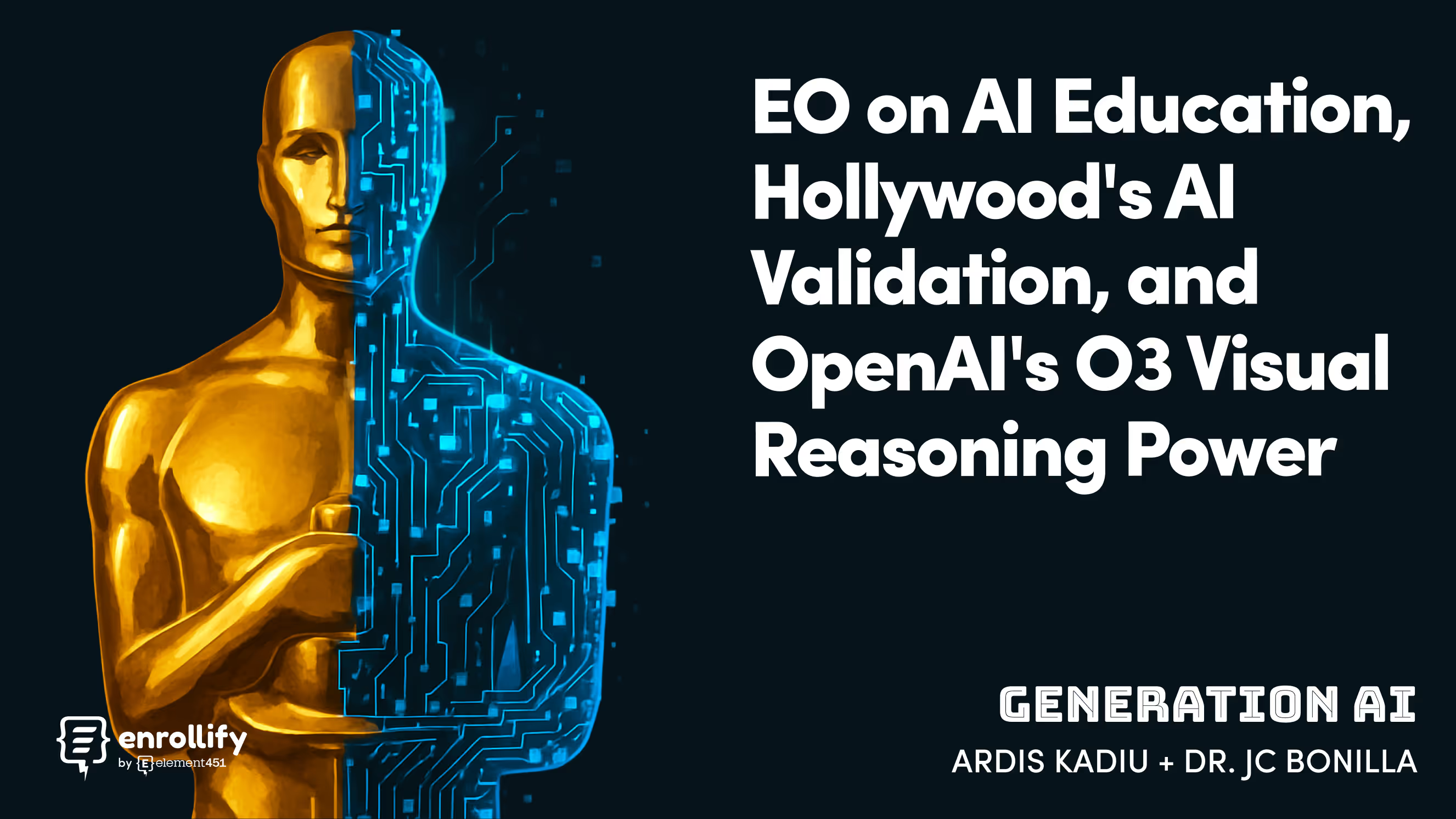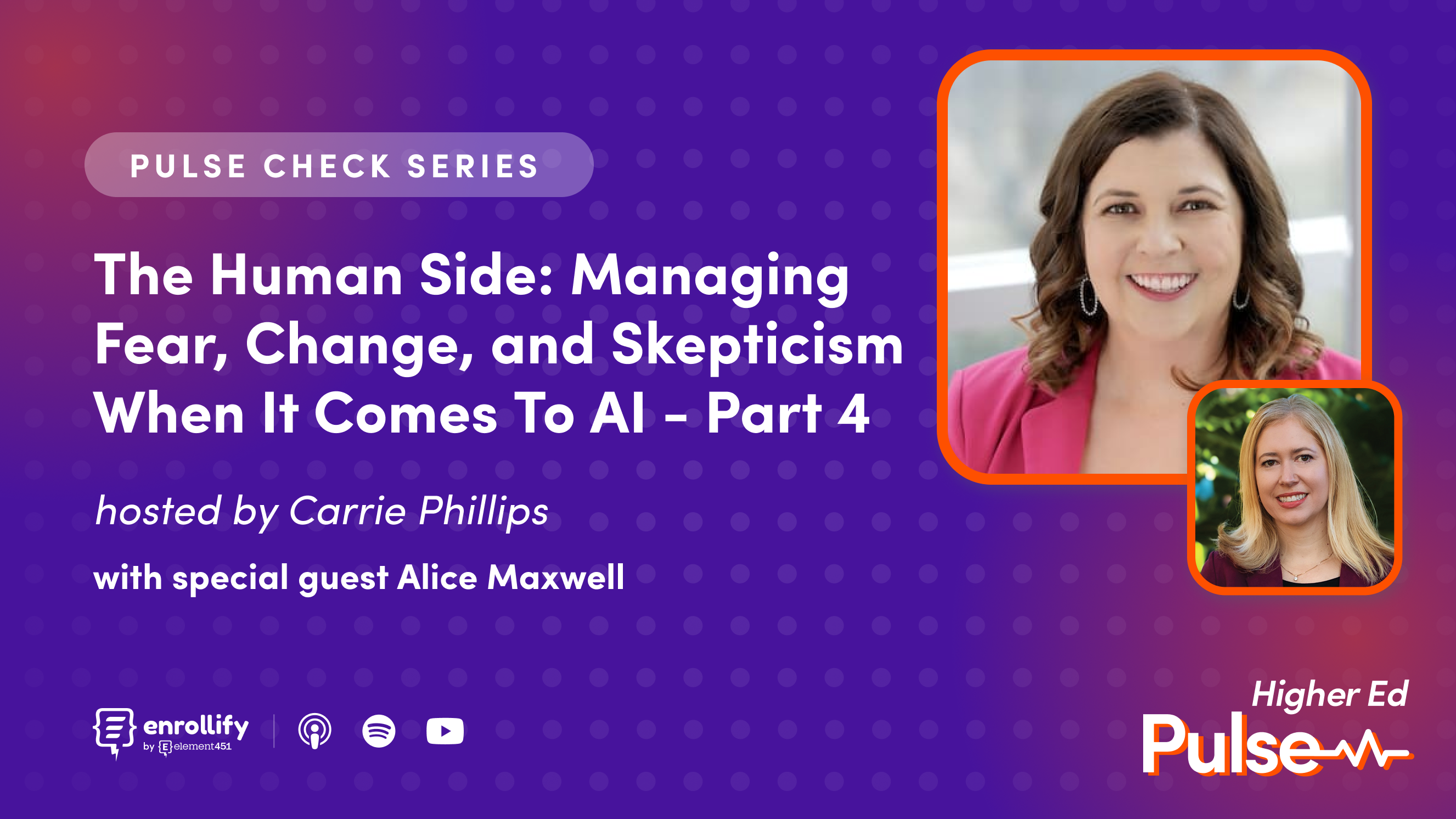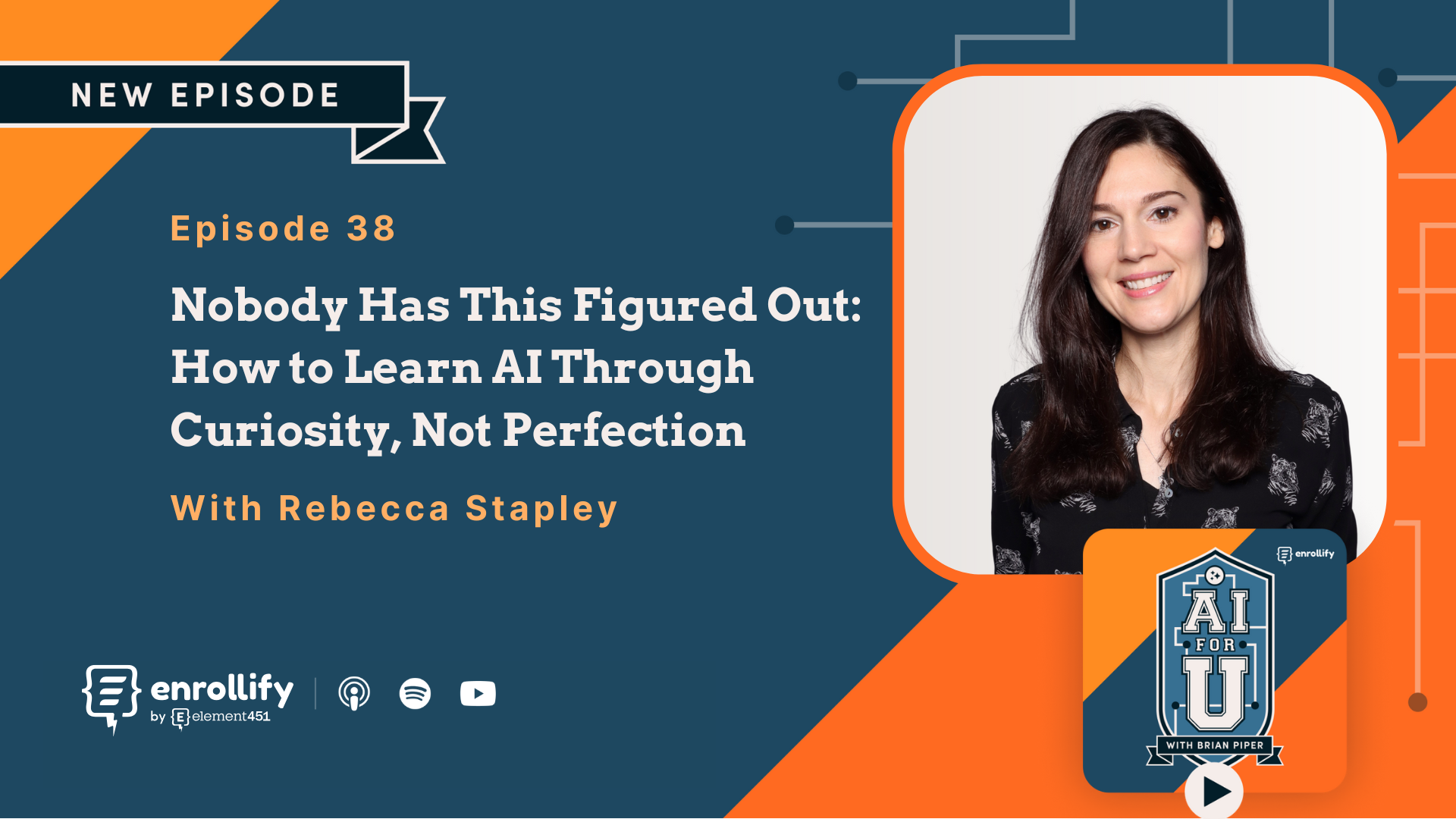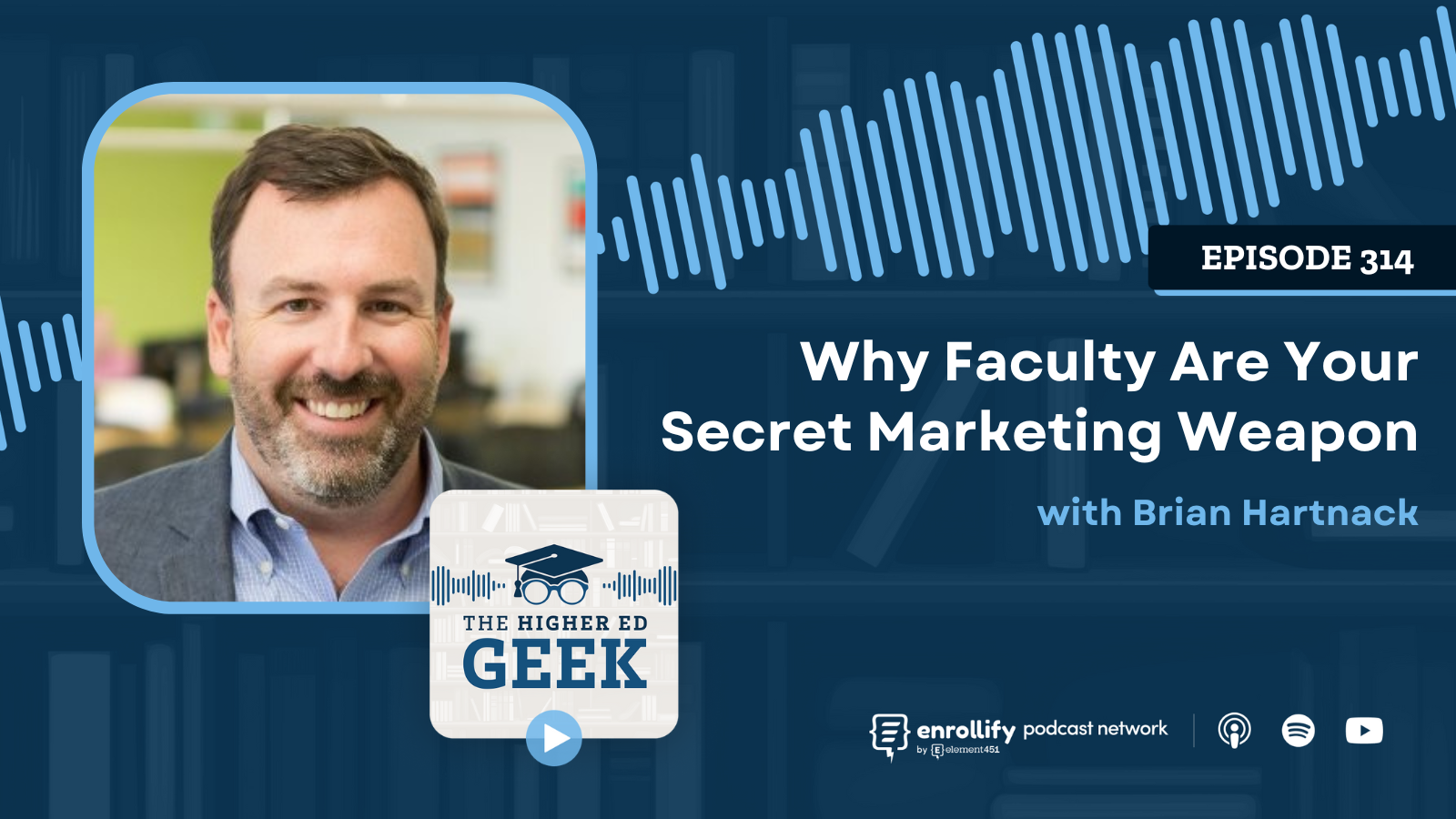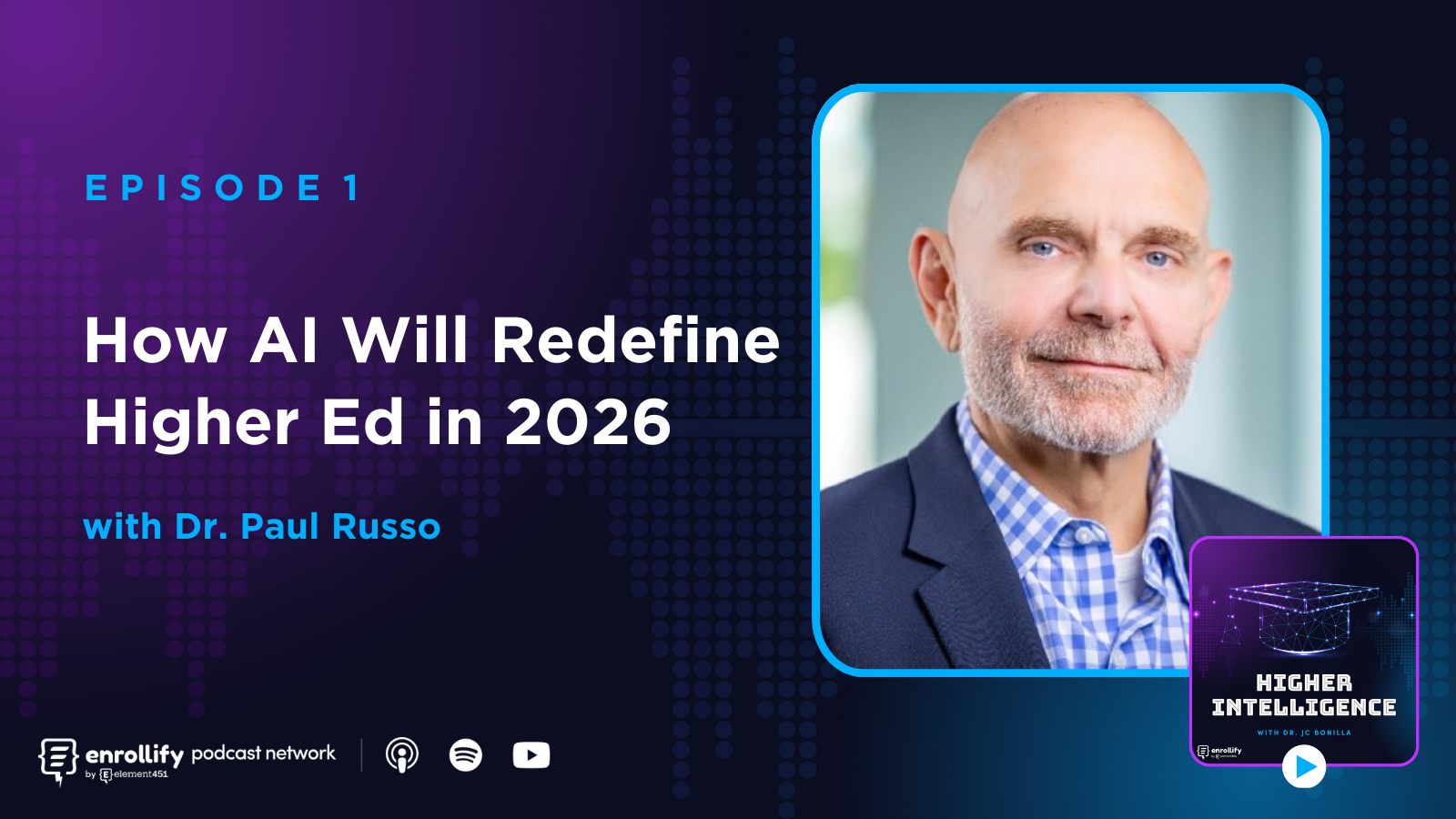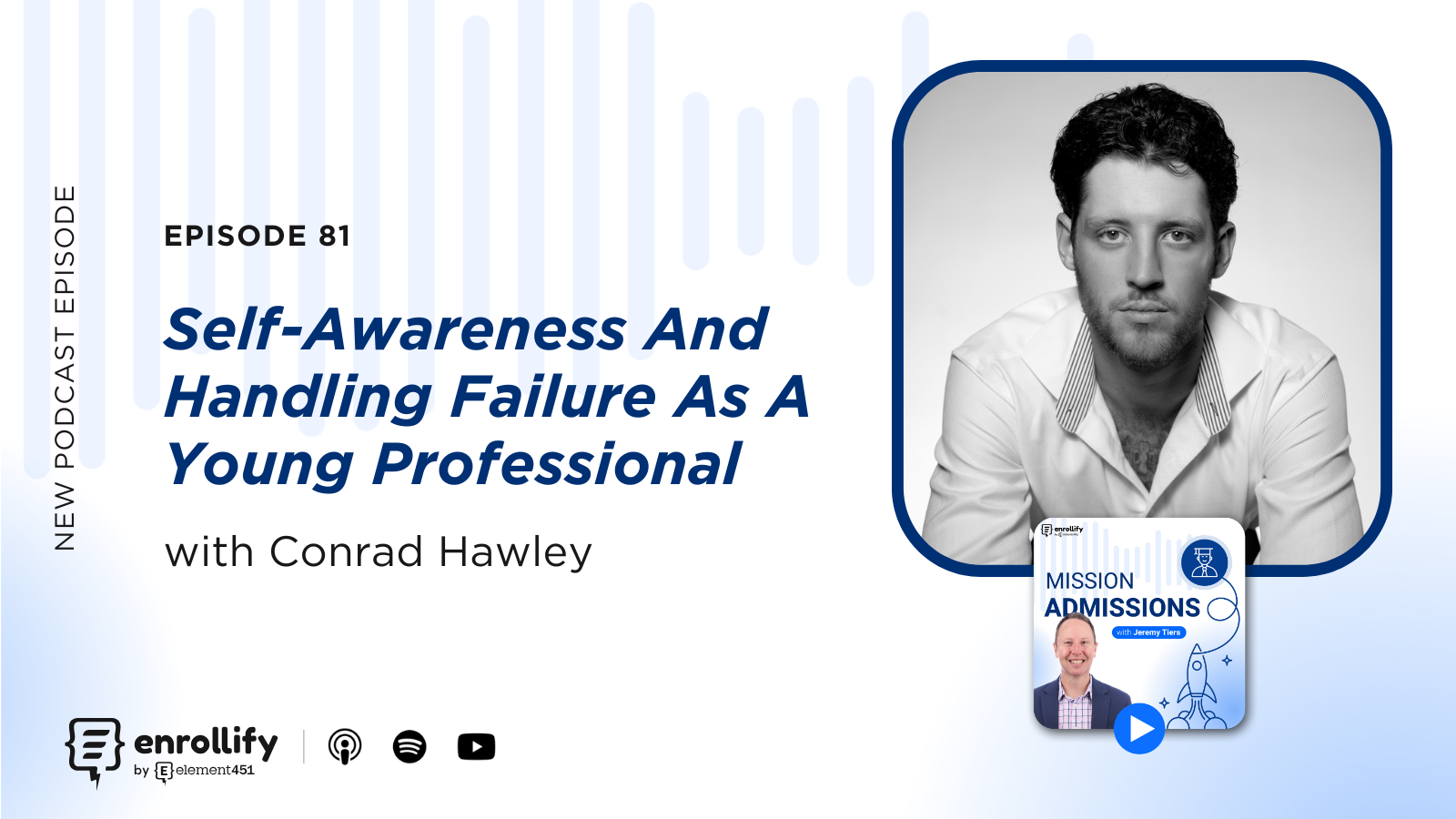About the Episode
About The Episode:
In this episode of Generation AI, hosts JC Bonilla and Ardis Kadiu discuss recent significant AI developments across education, entertainment, and technology. They analyze President Trump's executive order on AI education for K-12 schools, which challenges the "cheating narrative" and aims to promote AI literacy. They also examine the Academy Awards' decision to accept AI-assisted films for consideration. The hosts then dive deep into OpenAI's new O3 model, exploring how its multimodal reasoning capabilities allow it to process text, images, and code in unified ways that mimic human thinking. The episode highlights practical applications for marketing, data analysis, and higher education enrollment strategies.
Key Takeaways
- AI Education Policy Shift: President Trump's executive order aims to integrate AI literacy into K-12 schools, combating the "AI equals cheating" mindset.
- Hollywood’s AI Embrace: The Academy Awards will now allow AI-assisted films for Oscar consideration, validating AI's role in creative industries.
- OpenAI’s O3 Model Evolution: O3 brings advanced multimodal reasoning across text, code, and images, reshaping how AI can support education and marketing.
- Strategic Implications for Higher Ed: Tools like O3 open new doors for enrollment marketing, campaign analysis, and strategic data use.
- ChatGPT's Memory Feature: Personalization capabilities are expanding, offering smarter and more tailored AI interactions for marketers and educators.
What is the New Executive Order on AI Education About?
In a bold move to reshape the future workforce, President Trump signed an executive order on April 23rd focused on promoting AI literacy in K-12 education. The order establishes a White House task force to oversee the rollout of federal support for AI training initiatives. This comes as a direct counter to the rising trend of banning AI in classrooms—currently affecting over 60% of U.S. schools—where AI is too often framed negatively.
Hosts JC Bonilla and Ardis Kadiu passionately discuss the importance of this shift. Ardis even shares a personal story about his kids' fear of using AI at school, underlining the psychological barriers students face. If America wants to stay globally competitive, fostering AI literacy from a young age isn't optional—it's essential. This executive order could mark a critical inflection point in the broader acceptance of AI in educational settings.
How is the U.S. Positioned in the Global AI Race?
When it comes to global competitiveness in AI education, the U.S. has work to do. JC and Ardis emphasize the wide disparities in education quality across American school districts. Meanwhile, students in countries like China, Singapore, and Estonia are rapidly gaining hands-on AI experience.
The hosts advocate for systemic improvements in U.S. education to ensure students aren't just passive users of AI but are empowered creators and critical thinkers. Without such shifts, America risks falling behind in the global AI arms race—a stark reality higher education leaders need to address now.
How is Hollywood Recognizing AI’s Creative Role?
The Academy of Motion Picture Arts and Sciences has officially updated its rules for the 98th Oscars, announcing that films using generative AI are now eligible for awards. This monumental decision validates AI's growing role in the creative process without diminishing human artistry. The film The Brutalist, which used AI for accent enhancements, serves as an early case study.
JC and Ardis see this as an important cultural milestone: AI isn't just for back-office automation—it’s becoming a recognized creative collaborator. For marketers and enrollment teams, this offers permission to explore AI-assisted storytelling and branding in bold, award-worthy ways.
What Makes OpenAI's O3 Model a "Multimodal Marvel"?
OpenAI’s new O3 model isn’t just another chatbot—it's a leap toward visual reasoning AI. Unlike its predecessors, O3 can seamlessly process text, images, and code, mirroring human-like thinking. It’s powerful in disciplines like coding, math, and visual problem-solving, and it can handle tasks that require complex, multi-input reasoning.
JC and Ardis detail how O3 shifts the paradigm from "text in, text out" to full sensory processing. They explore how this advancement can supercharge marketing strategy for student recruitment, campaign analysis, and even creative ad generation. If you're not considering multimodal AI in your next enrollment marketing push, you’re already behind.
How Does O3 Compare to Other AI Models?
Testing side-by-side outputs between O3 and earlier models like GPT-4o, JC and Ardis highlight key differences. O3 often produces structured tables, organized analyses, and richer visual feedback, making it ideal for tasks like campaign performance analysis and higher education content marketing.
Ardis particularly recommends O3 for analyzing PDFs, creative brainstorming, and even financial modeling—highlighting its versatility across administrative and marketing functions. This model isn't just about doing things faster; it's about doing them smarter.
What New ChatGPT Features Should You Know About?
OpenAI’s memory feature update adds yet another layer of personalization. ChatGPT can now remember previous conversations, allowing it to tailor responses based on your history. For higher education marketers juggling multiple campaigns or enrollment projects, this could be a game-changer.
JC and Ardis imagine a future where your AI writing assistant remembers your style, preferences, and strategic goals across interactions—freeing you to focus more on innovation and less on repetitive tasks. It’s a tangible reminder that AI in higher education is moving toward deeply integrated, relationship-driven experiences.
Connect With Our Co-Hosts:
Ardis Kadiu
About The Enrollify Podcast Network:
Generation AI is a part of the Enrollify Podcast Network. If you like this podcast, chances are you’ll like other Enrollify shows too! Some of our favorites include The EduData Podcast.
Enrollify is produced by Element451 — the next-generation AI student engagement platform helping institutions create meaningful and personalized interactions with students. Learn more at element451.com.







